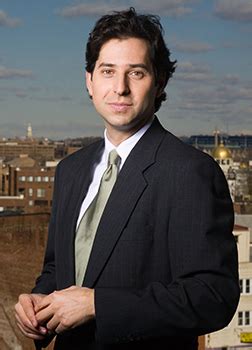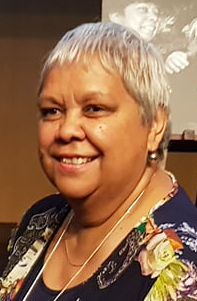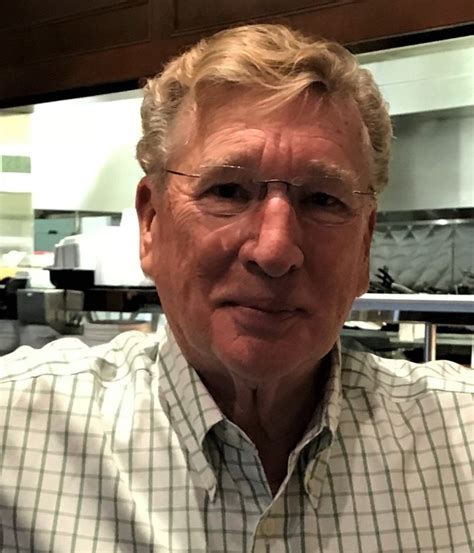A Quote by Les Wexner
When you coach and teach leadership, most people think about them. It's like you're the leader and how do you influence them. Clearly, leaders do take their followers, their flock, their enterprise, their business - whatever - hopefully to a better place. But I think the foundation of what makes really great leaders is they lead themselves, and they're conscious about knowing themselves and coaching and leading themselves in a very profound way. The simplest of us talk to ourselves. The question is, "Do we really lead ourselves?"
Quote Topics
About
Better
Better Place
Business
Clearly
Coach
Coaching
Conscious
Enterprise
Flock
Followers
Foundation
Great
Great Leader
Great Leaders
Hopefully
How
Influence
Knowing
Lead
Leader
Leaders
Leadership
Leading
Like
Like You
Makes
Most
Ourselves
People
Place
Profound
Question
Really
Really Great
Simplest
Take
Talk
Teach
Them
Themselves
Think
Us
Very
Way
Whatever
Related Quotes
When leaders claim that God bypasses their followers and speaks directly to them, they greatly diminish all God does through the lives of believers.Leaders who begrudge people the opportunity to seek God themselves and who do not actively teach their people how to hear God's voice have disqualified themselves as spiritual leaders.
Authenticity is about imperfection. And authenticity is a very human quality. To be authentic is to be at peace with your imperfections. The great leaders are not the strongest, they are the ones who are honest about their weaknesses. The great leaders are not the smartest; they are the ones who admit how much they don't know. The great leaders can't do everything; they are the ones who look to others to help them. Great leaders don't see themselves as great; they see themselves as human.
Not many of us will be leaders; and even those who are leaders must also be followers much of the time. This is the crucial role. Followers judge leaders. Only if the leaders pass that test do they have any impact. The potential followers, if their judgment is poor, have judged themselves. If the leader takes his or her followers to the goal, to great achievements, it is because the followers were capable of that kind of response.
I think it's very important to be able to hear from our public leaders in ways that they can't entirely orchestrate, seeing them speak live and unscripted and take questions that they themselves haven't arranged ahead of time. I think this is a way in which citizens who are deciding what they think of their leaders who govern in their name, this is one of the ways in which they can evaluate how they feel about the quality of the leadership.
The unwillingness of most leaders to set standards, to administer feedback when standards are not met, to praise clearly when standards are met, stands in the way of the development of excellence. The leader who makes no demands of his disciples cannot really lead them at all. The sense of new excitement and new challenge generated by the gospel will be blunted by leaders who shield followers from the full demands of fellowship.
To my mind, you cannot speak about the need for leadership within our communities without being prepared to take on responsibility yourself. It's not enough to point the finger at those who have let us down and to expect others to come forward and fix our problems. Nor can anyone afford to call themselves a leader unless they truly have the interests of our community at heart. Too many people like to think they are leaders and too many are identified by the media as leaders who are not really leaders at all.
People cannot stand the saddest truth I know about the very nature of reading and writing imaginative literature, which is that poetry does not teach us how to talk to other people: it teaches us how to talk to ourselves. What I'm desperately trying to do is to get students to talk to themselves as though they are indeed themselves, and not someone else.
The book is actually called 'A Mentor Leader, a Different Way to Lead.' It really talks about my experience in the way I tried lead our football team, things that I learned from, basically, the coaches that I played for and my parents about leadership. And it is a little bit different, counter to maybe what society says about great leaders.
Leadership belongs to all of us. I'm a big believer in John Maxwell, a leadership speaker and author, who talks about the 360-degree leader. Before leading others, you have to learn to lead yourself. Wherever you work in an organization you have to learn to lead up, lead down, and lead side to side. Leadership belongs to all of us. You have to see yourself, and believe in yourself in the way that we are talking about here to give to those that you lead.
I'm always trying to tell fans to love themselves. I see them going through a ton of hardships on Twitter and being bullied. It's really important and easier said than done to take care of yourself. A lot of people put themselves out for others and don't really think about mending themselves. Sometimes, they get a little lost that way.
The biggest shortage in the world is not oil or food-it's leadership. Why is it such a scarce resource? Because egos get involved. Most people in top positions think they are better than somebody else, think they need something better than somebody else. It's economic assets, it's status, it's all those other things that prevent the people at the top from subordinating themselves totally to the people they lead. It is not socialism. Leaders get paid a lot more than those they lead, they get paid for their knowledge and skill...but they are no better as a person.
I think me, as a leader, as a guy that's been cut, been humiliated, embarrassed, whatever you put on it, I think it's important just to embrace the guys around you, really support them, encourage them and then kinda give them that confidence. Let them know that you believe in them, and hopefully they'll get to believing in themselves.



































